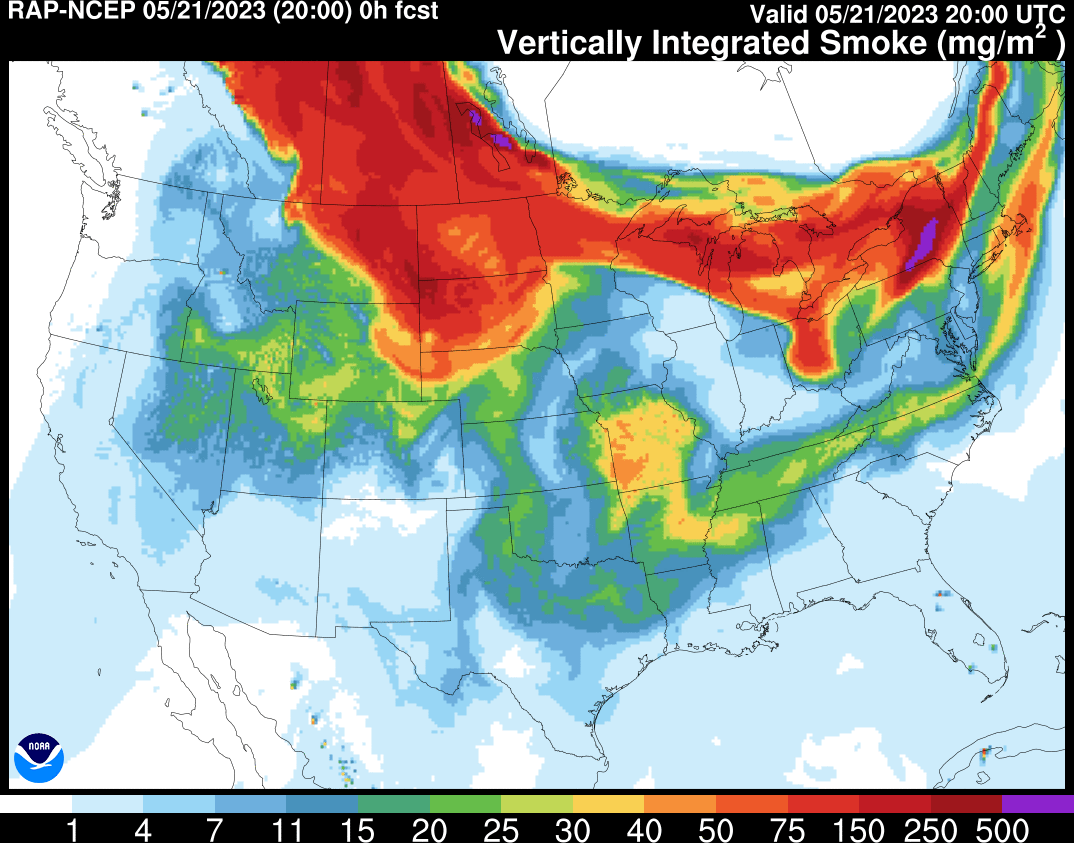
A new wave of smoke from wildfires burning in western Canada is moving south and is impacting Colorado, forecasters with the National Weather Service in Boulder said.
Satellite data suggest the plume, which will likely extend into the heavily populated Interstate 25 corridor, contains regions with thicker concentrations of smoke than the one that moved into the state last week. Weak wind patterns are also expected, which makes it more likely that smoke from the new plume will settle close to the ground and linger in the air most of the day Monday, said meteorologist Ayesha Wilkinson.
"If you're sensitive to smoke, maybe just limit your time outdoors," she said. "You might not want to do the gardening or the grass maintenance Monday afternoon or especially Monday evening because that's when we'll see more of that smoke coming down."
As of 6 a.m., the Colorado Department of Public Health and Environment had not issued an air quality advisory, but still warned of the advancing plume, particularly in northern and eastern Colorado.
"Unusually sensitive people should consider reducing prolonged or heavy exertion in northern and eastern parts of Colorado," CDPHE said in a 6:35 a.m. post.
The heaviest smoke could result in patches of haze that reduce visibility, Wilkinson said.
Wildfire smoke contains tiny particles that can enter the lungs and bloodstream when inhaled. State health officials had not issued any air quality alerts late Sunday.
The wind patterns are expected to change on Tuesday and help blow out the wildfire smoke, Wilkinson said. "Those areas should clear out pretty quickly once that shift happens," she said.
As of late Sunday, 80 wildfires were burning across Canada. Blazes near Alberta have forced oil and gas drillers to halt production, and smoke plumes from the fires prompted health officials to issue air quality alerts in Colorado and a half-dozen other U.S. states.









